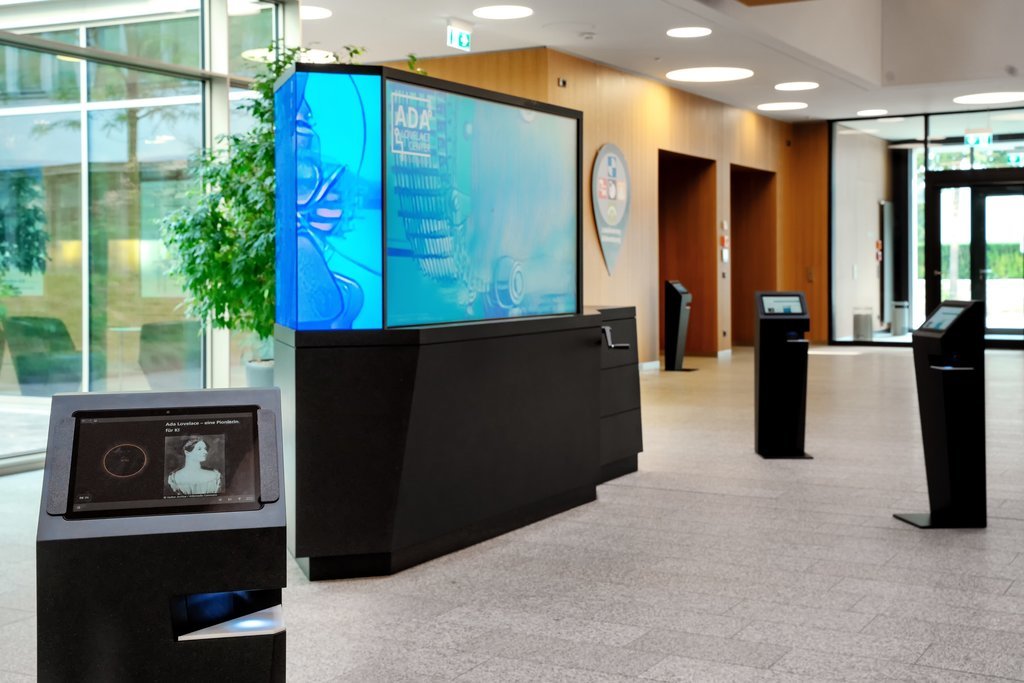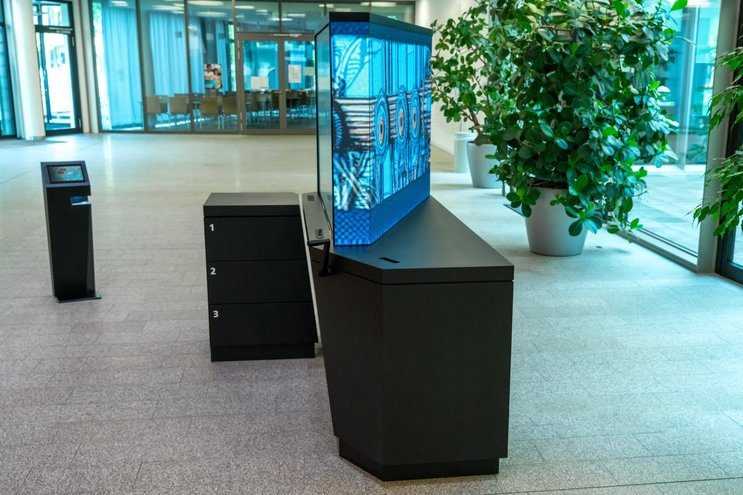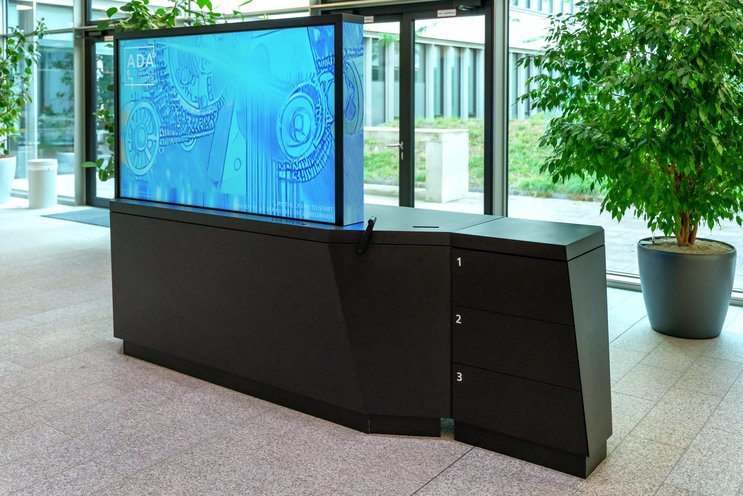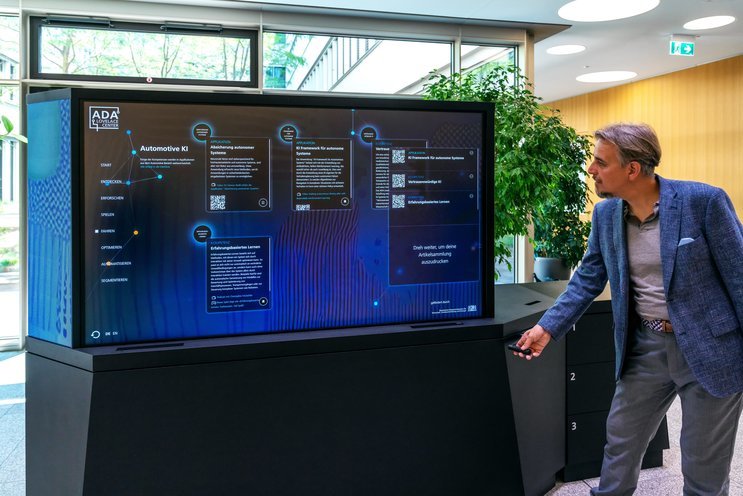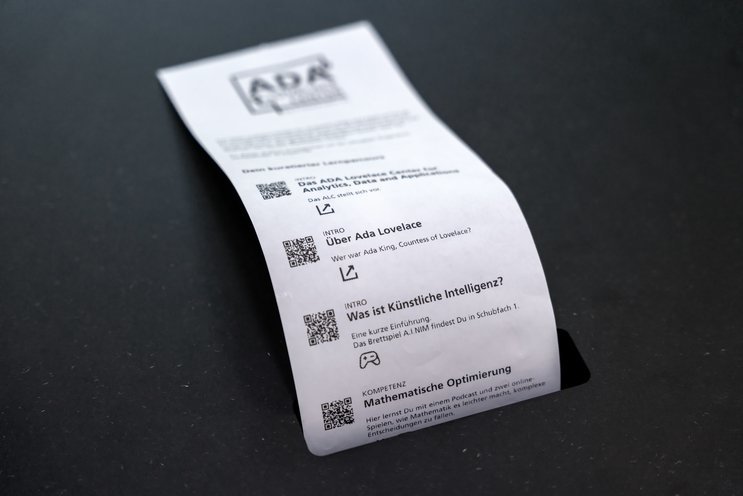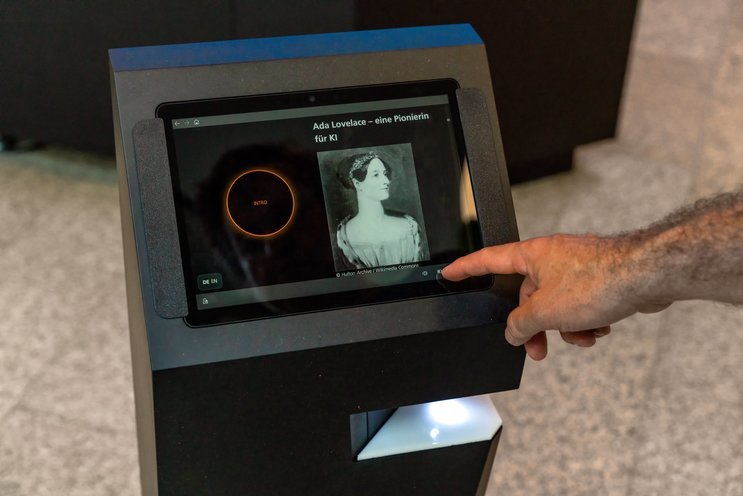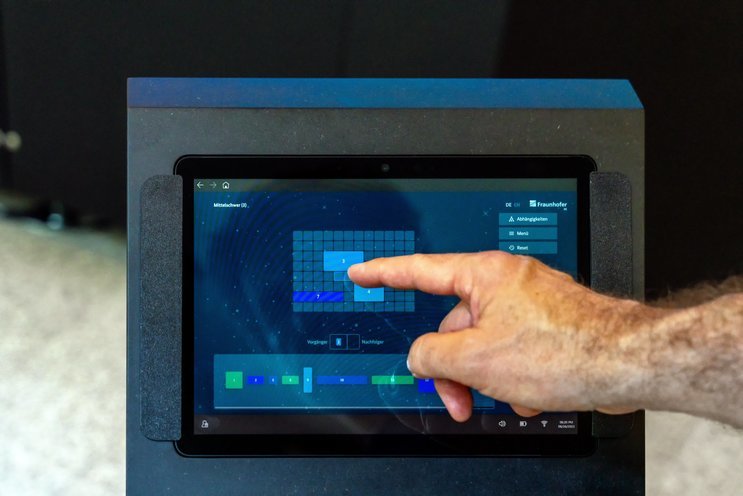We developed a modular furniture system for the ADA Lovelace Center. With digital, analog and playful elements, complex topics can be communicated flexibly depending on the target group and conversational situation.
One system, multiple set-ups
Using potentials
Research in the field of AI is progressing rapidly. Fraunhofer IIS was looking for a method to present research results to the public in temporary exhibitions in a confident, flexible and cost-effective way.
The furniture system we developed includes a media attractor, satellite furniture and a storage box. The elements can be used to present digital and analog content as well as research results. Printed routing slips help visitors navigate the complex topics and access the content in the room. Playful learning modules convey current research topics and basic principles digitally and haptically.
Creating an overview
The attractor is the central element and starting point of the information landscape. A large-format touchscreen and surrounding LEDs turn it into a media sculpture with AI-generated, moving visuals. Other content can also be used as required.
Its format quotes Charles Babbage’s Analytical Engine, a forerunner of today’s computers, for which Ada Lovelace developed the first computer programs.
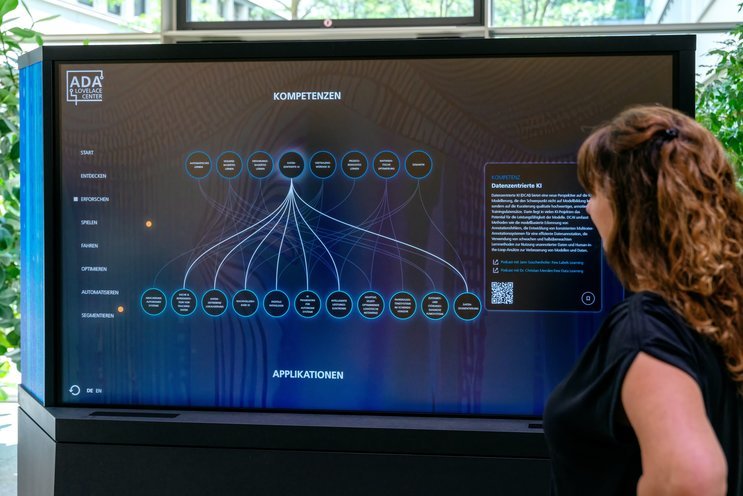
The introduction to the topic of AI and the project ADA Lovelace Center takes place on the touchscreen. Depending on the situation, the appropriate form of presentation is automatically selected. This allows visitors to interact both independently or supported by experts from Ada Lovelace Center.
The application matrix embedded in the software can display all topics in thematically configurable contexts, allowing for a quick and flexible adjustment of the system to different events and locations.
The selection of topics can be printed out by pressing a crank – another historical reference to Charles Babbage’s Analytical Engine, which was also planned with a printer. The routing slip provides visitors with all the information they need to find their way around – QR codes refer to digital content on the satellite, drawer numbers to analog offers. The attractor is free again for the next interaction.
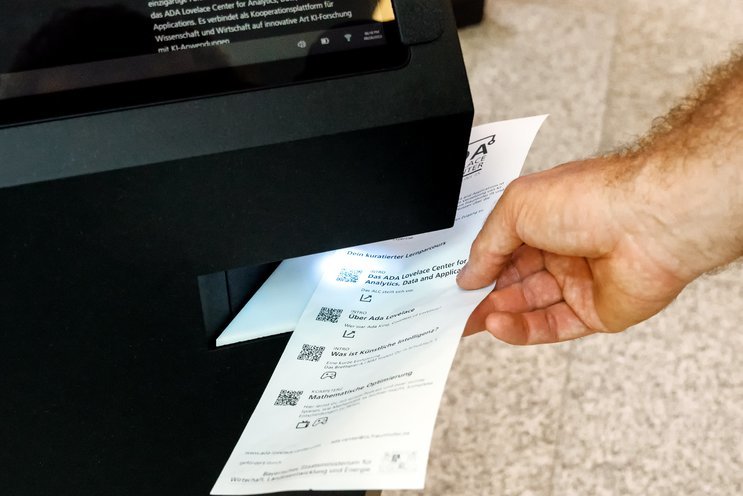
Deeper knowledge
The satellite contains a scanner. The QR code on the printout triggers the corresponding content on integrated tablets. With this technology, digital applications can be implemented in a cost-effective yet versatile way.
Satellite and attractor can access all topics so that more than one visitor can interact at the same time without getting in each other’s way.
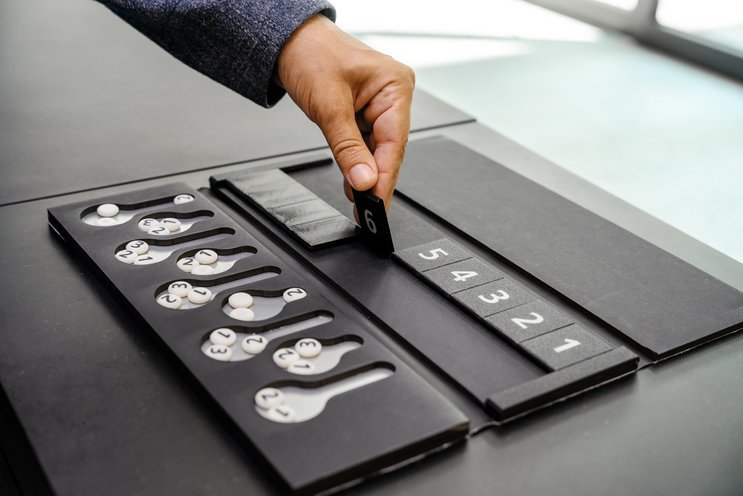
Play and learn
Visitors can also approach the topic of AI with analog tools stored in drawers. A game developed especially for the exhibition demonstrates the principle of reinforcement learning in neural networks. Consisting of laser-cut and 3D-printed individual parts with magnetic inlays, the game material is easy to produce, even in small quantities.
In other games, everyday objects such as coins or matches are cleverly repurposed.
With this hands-on knowledge transfer, we are adding another interactive principle to the exhibition, which also ensures that conversations and group experiences can take place away from screens.
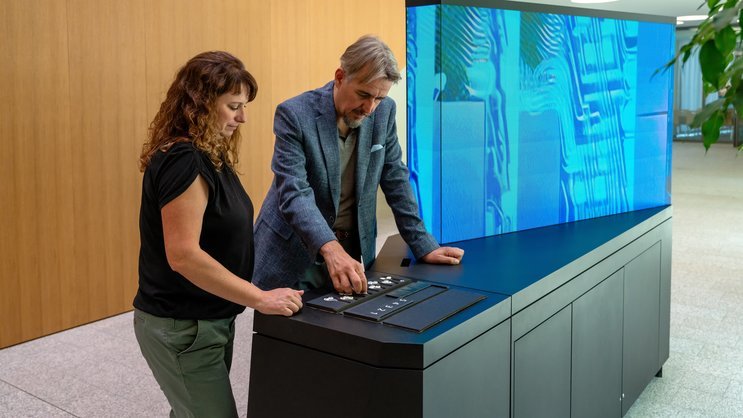
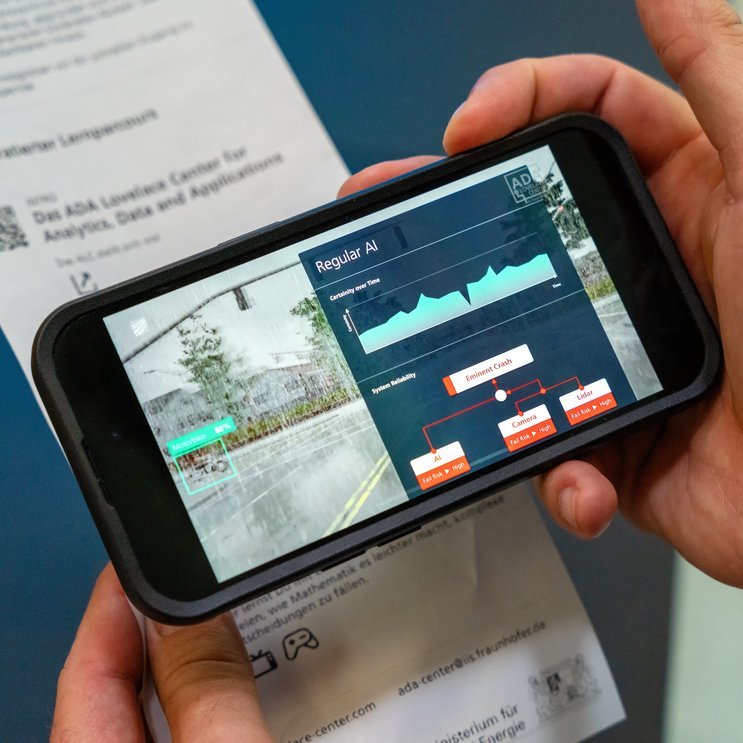
Collect and remember
Complex topics can also be explored at after using Ada Lovelace Center’s AI.Engine. The printed route sheet not only serves as a souvenir, but is also the key to the exhibition later on. To do this, the QR codes are scanned with a smartphone, as previously learned on the satellite. In this way, we achieve an overall experience that is memorable and makes research findings attractive to take away.
Related Projects
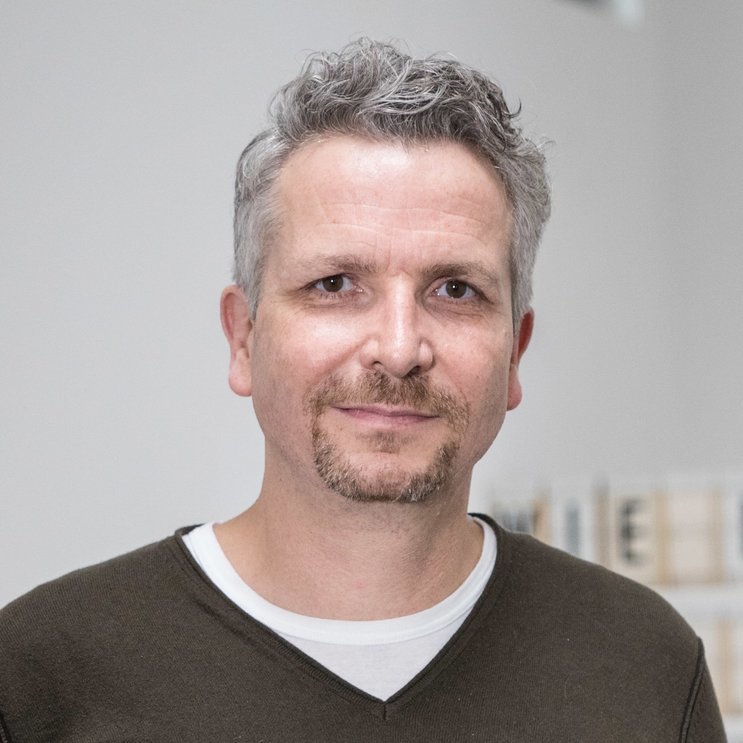
Curious about our approach? Feel free to get in touch!
Christian Leonhard Senior Project Manager +49 69 24 000 376 christian.leonhard@meso.design christian.leonhard@meso.design +49 69 24 000 376
MESO Digital Interiors GmbH
Gutleutstr. 96 . 60329 Frankfurt . Germany
Team
Anton Brams, Bettina Braun, Daniel Maaz, Paula Müller, Ben Schiek, Jonas Schreiber, Max Weber, Hannah Weirich, Max Wolf
